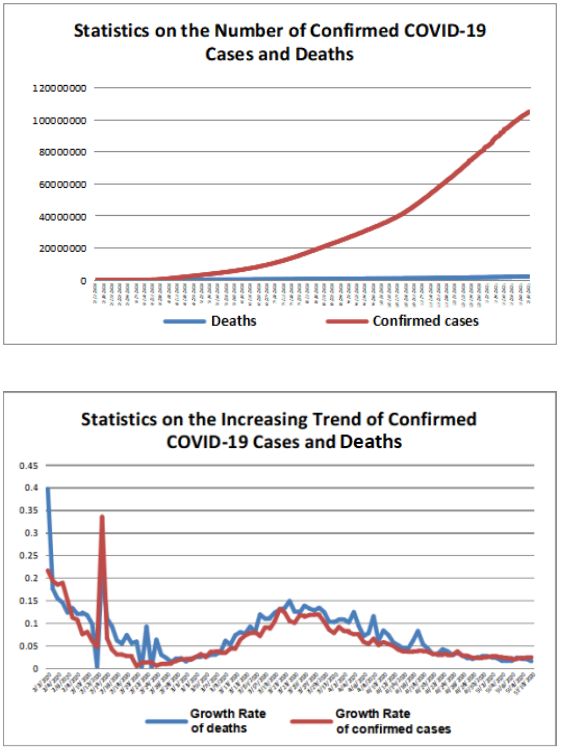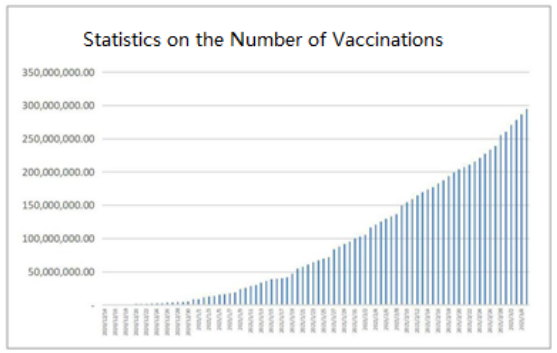The Pandemic Continues to Impact Consumer Confidence, and the New Variant Raised Concerns
Time:2021/09/10 BJT
1. Key Concerns
While the world remains clouded by the DELTA variant, a new variant has been identified. On 30 August, the World Health Organization (WHO) has recently added the new variant B.1.621 which was first documented in Colombia in January 2021, also known as the“MU” variant, to a list of “variants of interest.” As of 30 August,the MU variant has been confirmed in 39 countries(regions), and over 4500 cases have been reported. The WHO said the MU variant has mutations that suggest it could be more contagious, but further research would be needed to confirm this.
The new variant casts a shadow over the global economic recovery. Consumer confidence indexes of many countries fell at a time of limited progress in vaccination, the gyration of pandemic control measures, a slowdown in the pace of international trade and a crisis in the labour market. The University of Michigan’s gauge of consumer sentiment plunged to 70.2 in its preliminary August reading, which is well below the market expectation. The University of the Thai Chamber of Commerce's consumer confidence index fell to the lowest level in its July reading. The surveys released by the central banks of India and Indonesia showed that the consumer confidence index of the two countries was also at a low point in July 2021.
The fluctuation of the consumer confidence index reflects the adjustment of consumers' expectations of the economic outlook. Specifically, the spread of the new variants of the COVID-19 and the repetition of the global anti-pandemic process have frustrated the vision of a speedy end to the pandemic, and had an impact on consumer confidence, thus making consumers tending to curb consumption levels and increase savings. However, with the steady progress of pandemic prevention and control and vaccination, the adverse effects of the pandemic are expected to weaken, and improvements in employment, price levels and residents’ income will also effectively boost consumer confidence.
2. Briefing on COVID-19 Pandemic
According to WHO statistics, calculated numbers of confirmed COVID-19 cases and deaths reached 220,563,227 and 4,565,483 by September 6, 2021. The U.S., India, the UK, Iran and Turkey were the five countries (regions) with the highest number of new confirmed cases in the past seven days. The U.S., Russia, Mexico, Brazil and Iran were the five countries (regions) with the highest number of new deaths in the past seven days.

https://covid19.who.int/
Experts have called for widely accepted international standards for documentation that records Covid-19 vaccination and health status. Statistics from Our World In Data, an online research site of the University of Oxford, presented that 5,492,352,146 doses had been administered by September 5, 2021. A study conducted by the University of Exeter is promoting the establishment of globally accepted international standards for COVID-19 health status certificates. To build national standards, on the one hand, it is necessary to take technical solutions such as application programs and QR codes. On the other hand, an adequate balance between protecting the rights of individuals and safeguarding public interests should be taken into account. There is a crucial need to consider the laws and regulations, including those on data privacy and human rights. Policymakers need to ensure COVID-19 health status certificate providers abide by basic data protection principles, including confidentiality and security of the information collected. The International Air Transport Association (IATA) previously appealed to countries around the world to use the EU digital COVID-19 Vaccine certificate as a reference model.

https://ourworldindata.org/covid-vaccinations
The restrictive measures taken by countries(regions) are further differentiated. In the Asia-Pacific region, Myanmar, Philippines extended the restriction on the entry of passengers in varying degrees. Nepal, Thailand have alleviated their restrictive measures, and catering and other service industries are allowed to reopen on the condition of complying with anti-pandemic rules. Australia extended the restrictive measures in Victoria and the capital Canberra. Laos has implemented stricter restrictive measures in the capital Vientiane, including closing ports of entry. Japan is planning to extend the restrictive measures in Tokyo and adjacent counties. In Europe, the Council of the EU removed the United States, Israel, Kosovo, Montenegro, Macedonia and Lebanon from its list of epidemiologically safe third countries, and suggested the EU members impose entry bans on passengers from the above countries (regions). Accordingly, Italy and the Czech Republic have imposed stricter entry requirements on travelers from the United States. In the Americas, the Chilean Capital Region and Tarapaca Region shortened the curfew from September 2. The provinces of Canadian introduced vaccination certification policy and vaccine passports to facilitate international travel.

